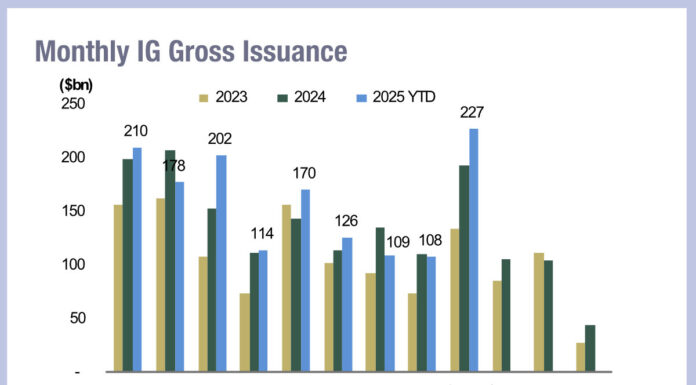During the ‘View from The Buy Side’ fireside chat at this year’s International Derivative Expo conference, Joseph Davidson, managing partner at Fulcrum Asset Management, shared how his firm ensures robust risk management, uses derivatives, and interacts with the latest technology.
Derivatives offer “loads of benefits”, according to Davidson. Fulcrum began using derivatives to hedge multi-asset portfolios in 2005, before starting to use them for investment purposes. “They were the go-to investment in terms of ease, liquidity, and the ability to use them for risk management,” he explained, with the firm later moving into further derivatives strategies.
Discussing how the firm is dealing with political uncertainty in its investment strategies, “the change at the moment is just unbelievable,” Davidson said. However, he noted that “purely from an investment perspective, it’s something that we embrace”. Volatility creates “a much better environment for our skillset”, he continued, serving as a positive for macro strategies.
To ensure strong risk management, Fulcrum brings three clearers onto each account, Davidson shared. This diversifies risk, with each contract assigned individually to a clearer to ensure that all three remain active. “There’s more pain when you’re setting up an account, but it’s clunky to do it any other way,” he noted, adding that having the ability to switch clearing providers at speed “helps us to sleep at night”.
“We believe that a lot of risk management strategies are quite static,” including strategic asset allocation, he shared, stating that the ever-changing correlations between asset classes need to be visible on a second-by-second basis.
Of course, as with the rest of the industry, Fulcrum is embracing artificial intelligence. The technology is being used most acutely in the research team, Davidson observed, and is helping to ensure that models are kept up to date and responsive to new data. “It’s a fascinating advance in the way that things are looked at,” he noted, explaining the firm’s embrace of ‘nowcasting’: finding out what the market is doing at any given moment, rather than relying on backwards-looking indicators.
Neural networks are also being used to provide iterative feedback loops, Davidson continued, allowing Fulcrum to monitor client needs and how they change over time and helping the firm to enhance its client services. However, on macro investing in particular, “AI is probably very overblown when it comes to its impact on the ground,” he added.
Concluding the conversation, Davidson discussed Fulcrum’s approach to ESG in its investment strategies. “We see climate change as one of, if not the most, largest macro risk to the world, long term,” he affirmed. Lamenting the politicisation of the topic, he urged that “we can’t get wrapped up in our silly political games for an issue as important as this”.
©Markets Media Europe 2024
©Markets Media Europe 2025












